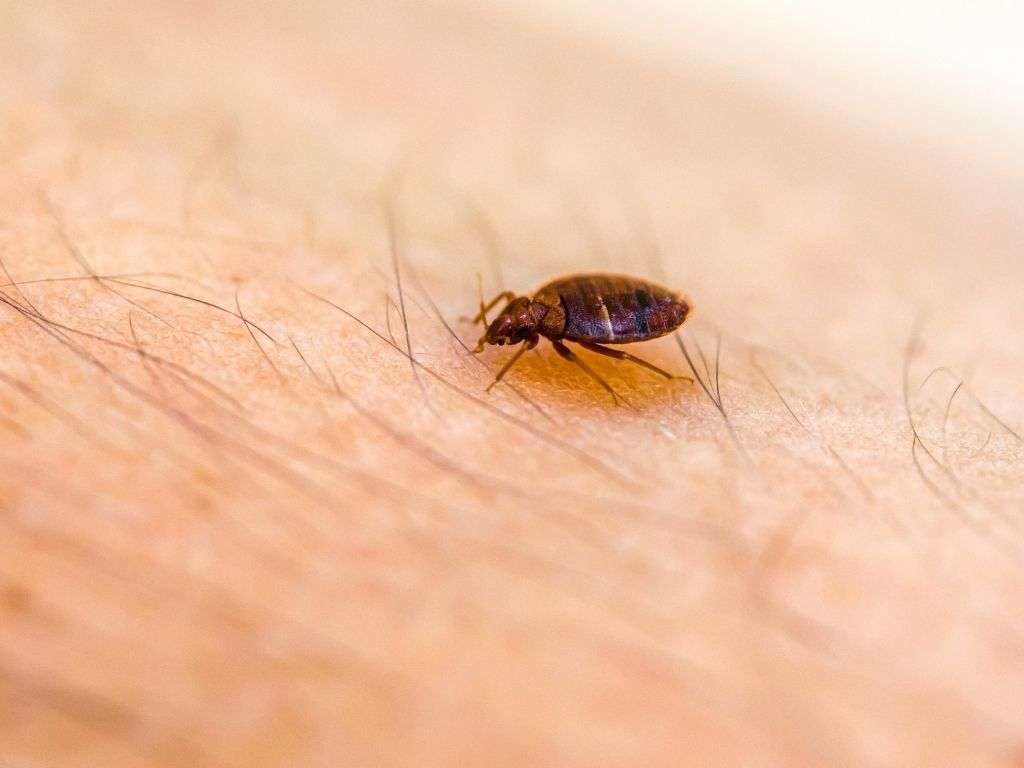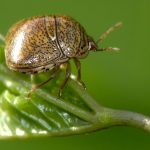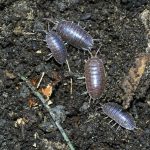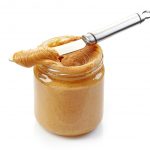As a homeowner, I’m always concerned about pests in the home, especially bed bugs. I’m sure many of you have the same concern, so you’re probably wondering: how long can bed bugs live without food? In this article, we will explore the answer to this question and learn more about the survival of bed bugs.
What Are Bed Bugs?
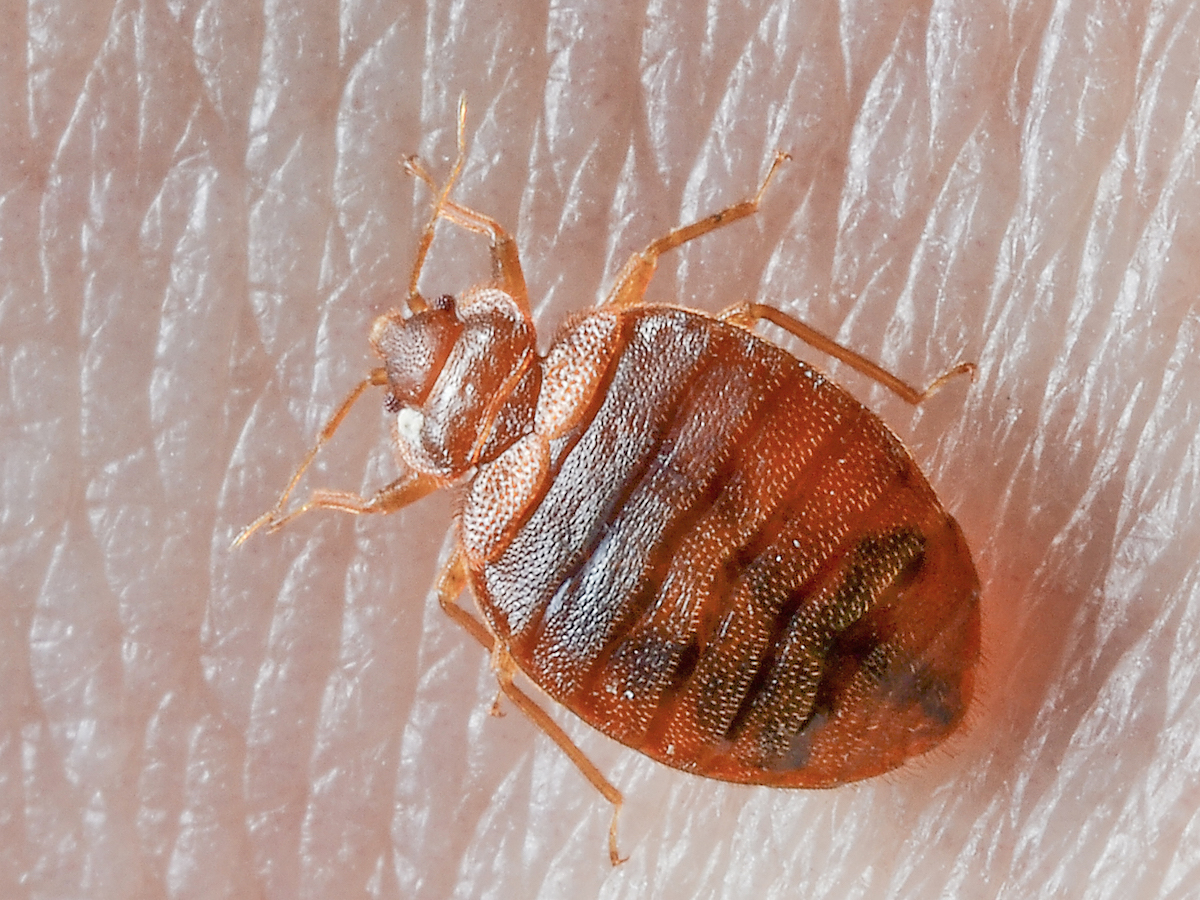
Bed bugs are small, oval-shaped insects that feed on the blood of humans and animals while they sleep. They are typically brown in color, but can turn red after they have fed. They are typically found in areas where people sleep, such as beds, couches, and chairs, but can also be found in other places such as carpets, curtains, and even clothing. Bed bugs are extremely small and difficult to see with the naked eye, but they can be seen with a magnifying glass.
Bed bugs can live for up to a year without food, and they can survive temperatures ranging from nearly freezing to 122°F. They are usually active at night, when they come out to feed on their hosts.
| Characteristic | Description |
|---|---|
| Shape | Small, oval-shaped |
| Color | Brown, can turn red after feeding |
| Location | Beds, couches, chairs, carpets, curtains, clothing |
| Size | Extremely small and difficult to see with the naked eye |
| Survival time without food | Up to one year |
| Survival temperature range | Nearly freezing to 122°F |
| Activity | Usually active at night |
How Long Can Bed Bugs Live Without Food?
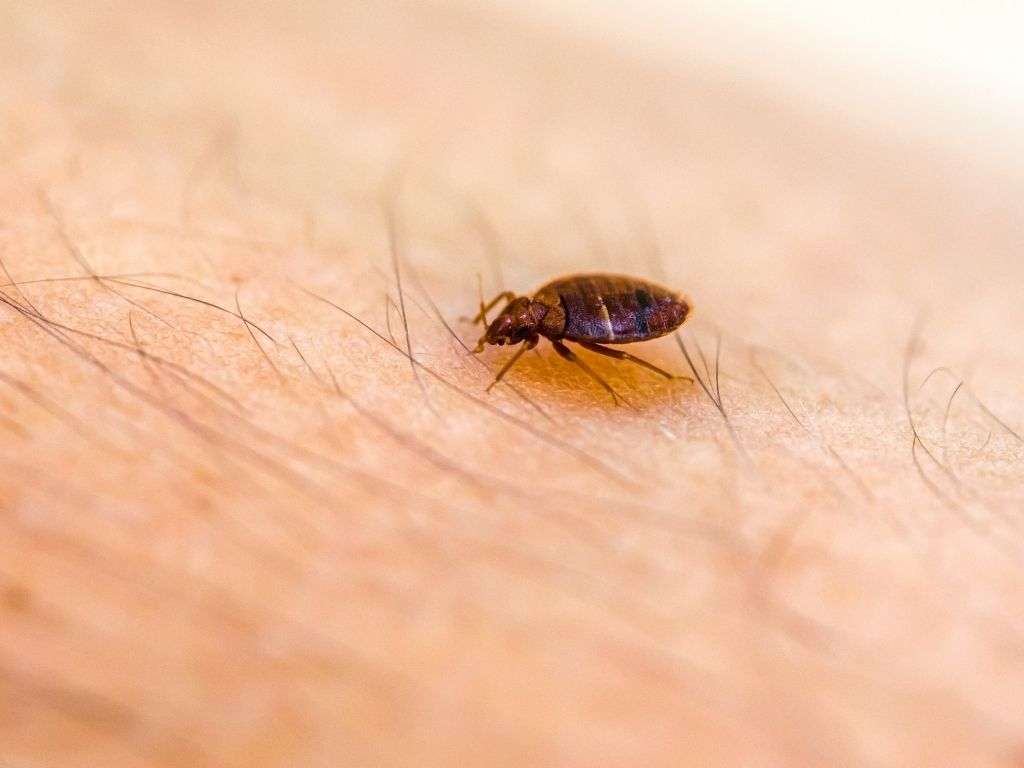
Bed bugs can live without food for up to twelve months. However, without a blood meal they will eventually die off. These insects feed primarily on human blood and can survive for months without it. They can also survive on other warm-blooded animals, such as cats and dogs.
Without food, bed bugs enter a state of diapause, where their metabolism slows down significantly. This allows them to survive for longer periods of time. In a laboratory environment, bed bugs have been observed to live for up to a year without food.
Bed bugs are able to survive for long periods of time without food because they are able to slow down their growth and metabolism. They can survive in extreme temperatures and can hide in very small spaces. This makes it difficult to detect and eliminate them.
It is important to be aware of the fact that bed bugs can survive for long periods of time without food. If you suspect that you have a bed bug infestation, it is important to take action immediately. You should contact a pest control professional to inspect your home and provide effective treatment to get rid of these pests.
Factors That Affect Bed Bugs’ Life Without Food
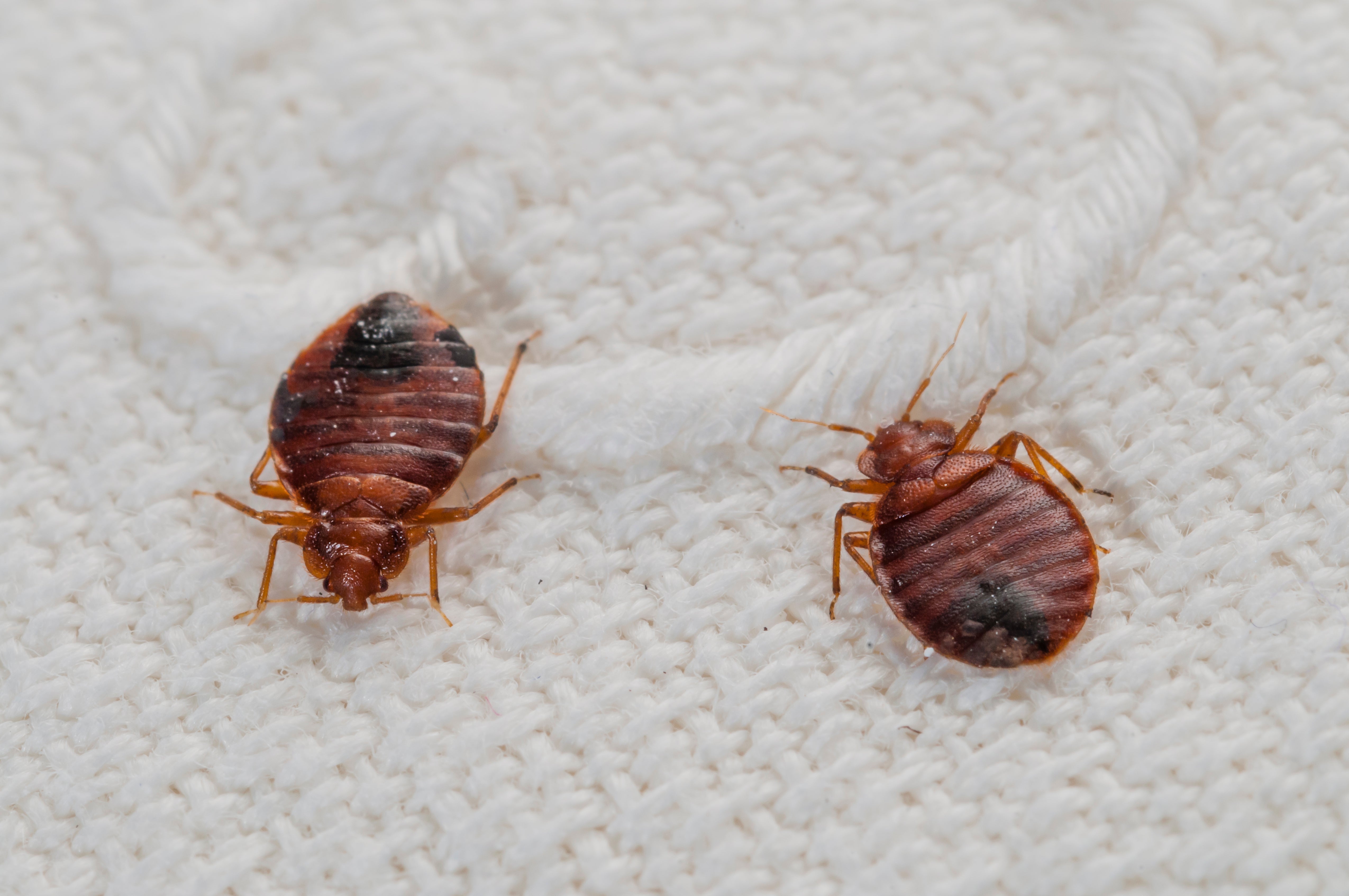
Bed bugs can survive for months without food, depending on several factors. These include:
- Temperature: Bed bugs can survive much longer in cooler environments and die off more quickly in warm temperatures.
- Humidity: Low humidity levels can reduce a bed bug’s survivability.
- Access to Water: Bed bugs need access to water to survive.
- Age: Adult bed bugs can survive longer without food than younger bed bugs.
- Nutrient Reserves: Bed bugs can draw on their stored nutrients in their bodies to survive without food.
The length of time bed bugs can survive without food can vary greatly depending on these factors. For instance, in a cooler environment with access to water and high humidity levels, bed bugs can survive up to a year without food. In warmer environments without water and low humidity, bed bugs may only survive a few weeks.
Adult Bed Bugs
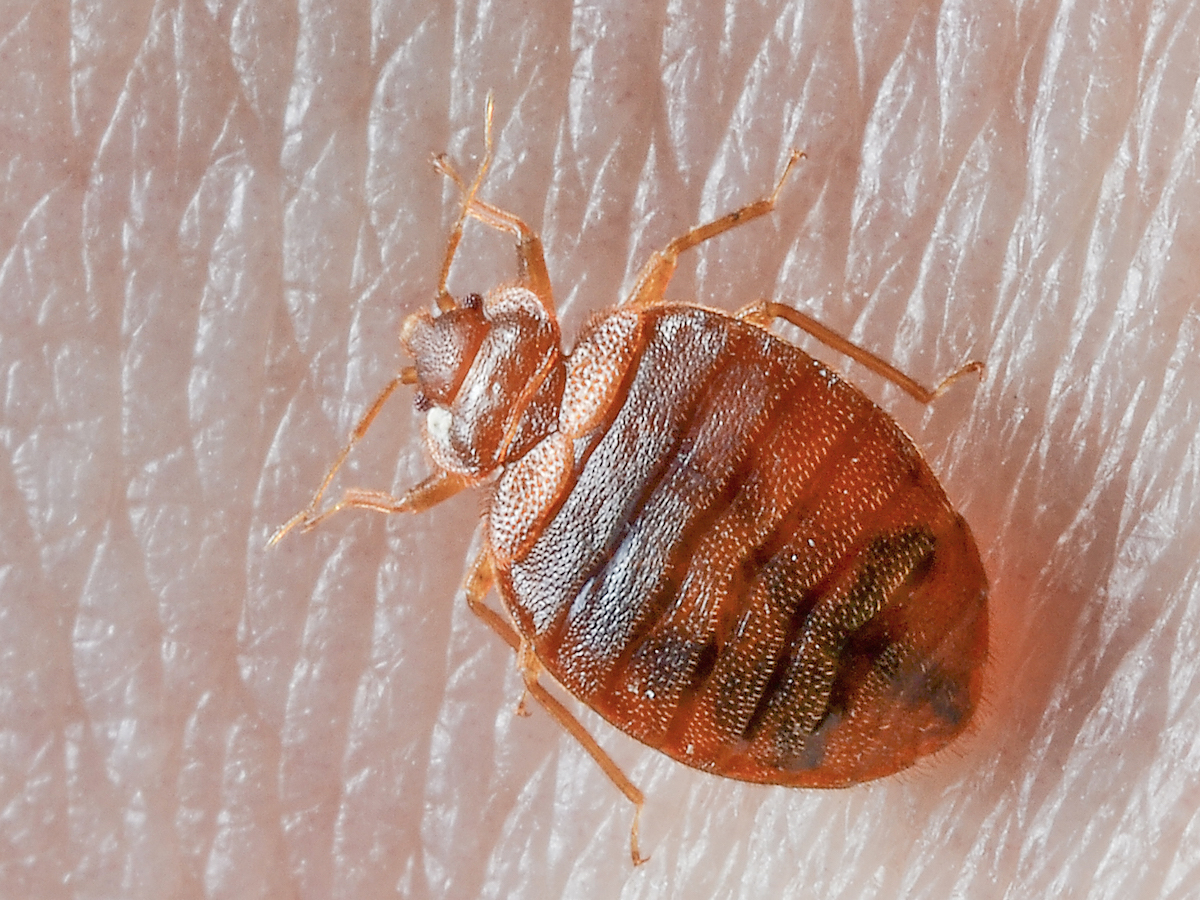
Adult bed bugs can survive for several months without feeding, depending on the temperature and humidity levels. In cooler temperatures, adults can survive for up to five months without feeding. In higher temperatures, adults can only survive for about one month without feeding. In most cases, adult bed bugs can survive for about two months without food.
Table: Adult Bed Bugs Survival Time Without Food
| Temperature | Survival Time Without Food (months) |
|---|---|
| Cooler | 5 |
| Higher | 1 |
| Most Cases | 2 |
It is important to note that adult bed bugs can survive without food for longer periods of time if they have access to water. For example, if the humidity levels are high, the adult bed bugs can survive for up to three months without food.
Nymphs
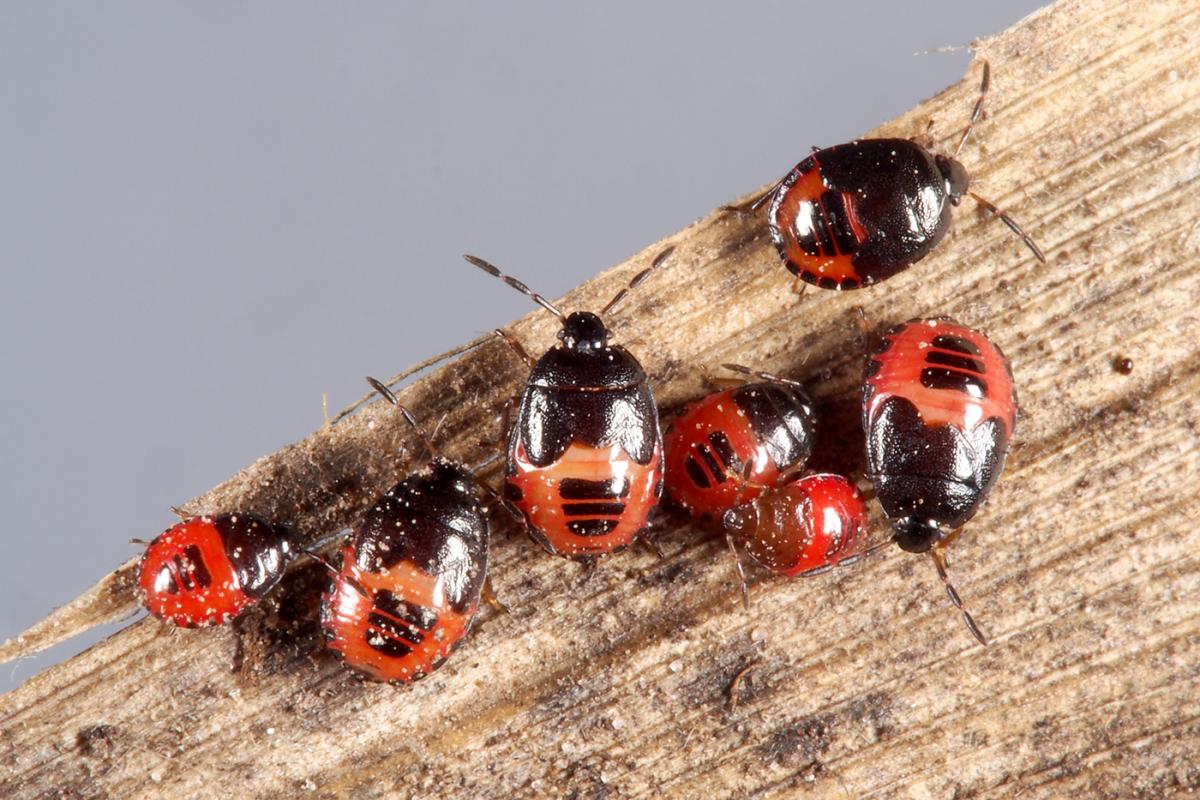
Nymphs, or immature bed bugs, can survive for several weeks without eating. During this time, nymphs will remain in the same place, usually hiding in a crack or crevice. Without a regular food source, nymphs will become dormant, slowing their metabolism and entering a state of suspended animation. This helps them to survive in unfavorable conditions and to wait for a host to return.
Baby Bed Bugs
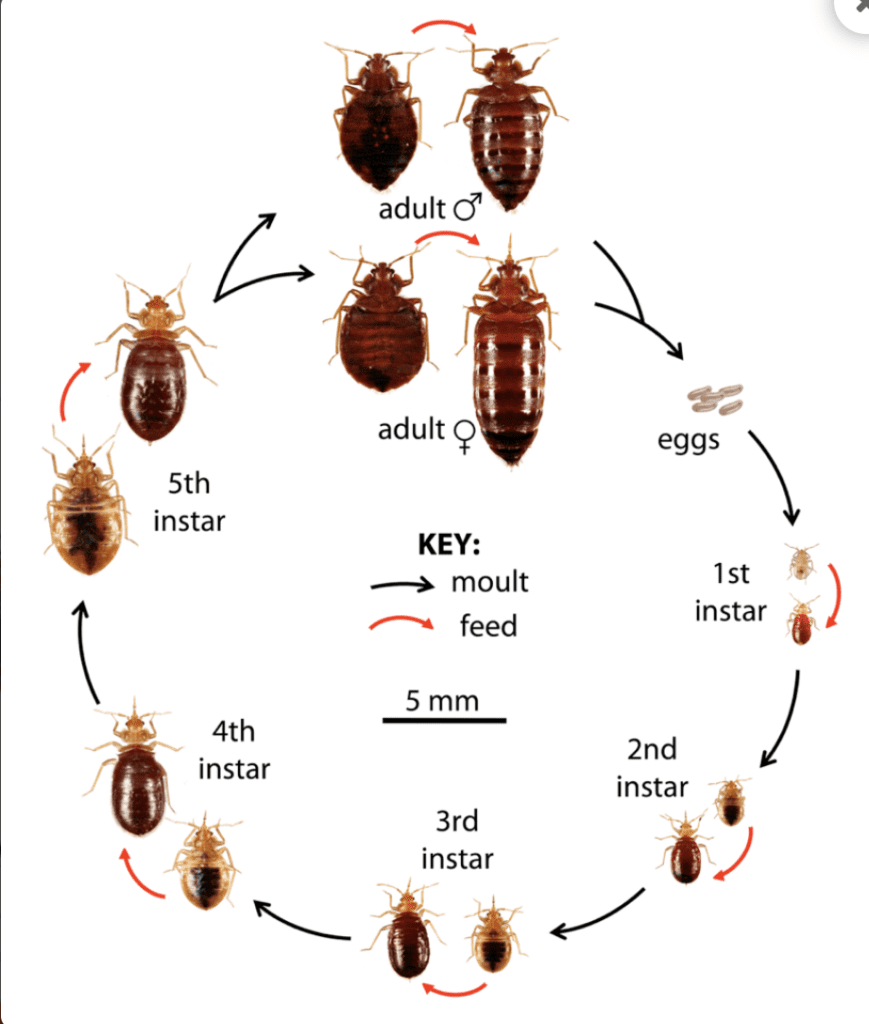
Baby bed bugs, also known as nymphs, are newly hatched bed bugs. They are just under a millimeter in size and are nearly colorless. As they age, they become larger and darker. Baby bed bugs need to feed within a few days of hatching. If they cannot find a food source, they will die.
To survive without food, baby bed bugs must molt five times before reaching adulthood. After each molt, they can go a few days without a meal. The amount of time they can go without food increases with each molt.
| Molt | Max Time Without Food |
|---|---|
| 1st | 2-3 days |
| 2nd | 4-5 days |
| 3rd | 7-9 days |
| 4th | 14-17 days |
| 5th | 21-28 days |
At each molt, baby bed bugs shed their skin and become larger and darker. Once they reach adulthood, they will require a meal every 3-10 days to survive. Adult bed bugs can survive for several months without food, depending on environmental factors.
How to Starve Bed Bugs
Starving bed bugs is a simple yet effective way to get rid of them. To starve the bed bugs, you need to eliminate food sources, such as human blood and pet food. You can do this in a number of ways:
- Eliminate clutter from your home, as bed bugs tend to hide in cluttered areas.
- Regularly vacuum carpets and upholstery, as this helps to remove bed bugs and eggs.
- Encourage your pets to sleep on a hard surface, as this makes it more difficult for bed bugs to hide and feed.
- Store food securely and away from bed bugs, as they will feed on any food they can find.
- Keep your home clean and tidy, as this helps to reduce the number of bed bugs.
Once you have eliminated food sources, you can start to starve the bed bugs. This can be done by sealing off any cracks and crevices in your home, as bed bugs need to be able to move around to feed. You can also use insecticides to kill any bed bugs that may still be present.
Finally, you can starve the bed bugs by using an integrated pest management approach. This involves a combination of chemical, physical, and biological methods to control the bed bug population. This may include using traps to monitor the bed bug population, using insecticides to kill bed bugs, and using heat or cold to kill bed bugs.
By using these methods, you can effectively starve the bed bugs and get rid of them for good.
Prevention
Bed bugs are very resilient insects, so it’s important to take preventive steps to keep them from invading a home. Vacuuming regularly and using mattress covers can help reduce the risk of infestation.
Remove clutter from your home, especially in areas where bed bugs are likely to hide, like cracks and crevices.
Deep clean carpeted areas, and steam clean furniture and upholstery.
Inspect any secondhand furniture for bed bugs before bringing it into the home. Look for signs of bed bugs such as dark spots, eggs, and shed skins.
| Strategy | Purpose |
|---|---|
| Vacuuming regularly | Reduce the risk of infestation |
| Using mattress covers | Reduce the risk of infestation |
| Remove clutter | Reduce areas where bed bugs can hide |
| Deep clean carpeted areas | Remove bed bugs |
| Steam clean furniture and upholstery | Remove bed bugs |
| Inspect any secondhand furniture | Look for signs of bed bugs |
Make sure to inspect any luggage, backpacks, and other items when returning from a trip, as bed bugs can easily be transferred from one location to another. If bed bugs are found, contact a pest control professional right away.
Frequently Asked Questions
How long can bed bugs live without food?
Bed bugs can survive for several months without a meal. They typically go without food for up to a year, but can live for over a year in certain circumstances. Bed bugs are able to enter a state of dormancy when food is not available, which helps them to survive for longer periods of time. They can also survive cold temperatures, which helps them to persist in colder climates.
How Long Does it Take Bed Bugs to Starve?
Bed bugs can survive for about two months without food, but after that, they will begin to starve. Bed bugs can typically go four to six weeks without feeding, but will eventually die from starvation. When the bed bug is starved, it will lose its ability to reproduce and will die shortly after.
How long can bed bug nymphs live without feeding?
Bed bug nymphs can survive for several months without feeding, but they require a blood meal to reach adulthood. Adult bed bugs can survive even longer without feeding, up to a year depending on the temperature and humidity. Nymphs can live for weeks without feeding, but their growth is stunted if they do not have regular meals. In optimal conditions, nymphs can survive for up to 5-6 months without food.
How long can baby bed bugs live without feeding?
Baby bed bugs, also known as nymphs, can survive for up to several months without a blood meal. They can survive longer without food in cool temperatures but will die within a few weeks if the environment is too hot or too dry. Nymphs molt five times before reaching adulthood, and each molt requires a blood meal. After the final molt, adult bed bugs can survive up to one year without food.
What steps can be taken to starve bed bugs?
The most effective way to starve bed bugs is to eliminate their access to food. Vacuuming the infested area regularly can help to remove adult bed bugs, eggs, and droppings. Sealing up any cracks and crevices in the walls, floors, or furniture can also help to prevent bed bugs from accessing food sources. Bed bug-proof covers for mattresses and box springs can also be used to prevent bed bugs from getting to their food source. Additionally, regular laundering of bedding, linens, and other fabrics can help to get rid of any bed bugs that may be present.
Conclusion
Bed bugs can go without food for a surprisingly long time, up to a year in some cases. But this is only possible under optimal conditions, and as soon as food is available, they will feed. Therefore, it is important to identify and treat bed bug infestations as quickly as possible to avoid further spread of the bugs.
- Goddard, J., de Shazo, R. (2015). Bed Bug (Cimex Lectularius) Starvation and Desiccation Resistance Is Not Affected by Blood Feeding Status. PLoS ONE, 10(7), 1-11.
- Kells, S. A., Reinhardt, K., & Naylor, R. A. (2010). Bed bugs (Cimex lectularius) and clinical consequences of their bites. Journal of Medical Entomology, 47(1), 51–57.
